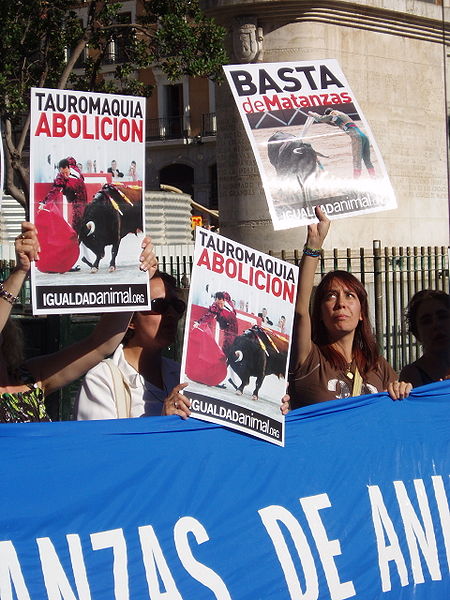Bullfighting may be one of the last bloodsports to disappear completely, due to a legislation which has awarded it with a special status in Spanish culture.
According to the Guardian, the bill – which was passed with twenty-four votes to six – solidifies the status of bullfighting as “part of the cultural heritage worthy of protection throughout the national territory”, despite strong and vocal opposition from every direction. However, almost all of the amendments put forward by these opponents were rejected by the right-wing People’s Party.
Although conjuring up a stereotypical image of Spanish culture, there has been a gradual decline in the popularity of bullfighting, due to ongoing pressure from animal rights groups and campaigns which demand greater recognition of and support for animal welfare; in short, to stop citing entertainment and culture as reasons to put animals through deaths preceded by great torment and suffering. It is notable that some of this support for animals comes from within Spain, in the form of “Torture is not Culture”.
The growing awareness is also in part due to tourists seeing for themselves exactly what the animals go through; in the annual Running of the Bulls in Pamplona, the event does not stop with the “running”, and in fact the bulls are rounded up into an arena and meet a similarly violent and distressing end to the bulls in bullfighting.
The ban of bullfighting has been successful and complete in Catalonia and the Canary Islands, but as yet is limited to these places, as other regions attempt to preserve bullfighting as a tradition. But one of the only things going for bullfighting, in this day and age, is the notion of “tradition”, which is not dissimilar to the tactics used by many countries to boost tourism, and thus the economy.
In this respect, one of the best ways to stop events featuring animal cruelty, such as bullfighting, is not to have any role in it while travelling abroad, even as a spectator, as this involves contributing to suffering, which must sooner rather than later lose its “status” as a national tradition.

